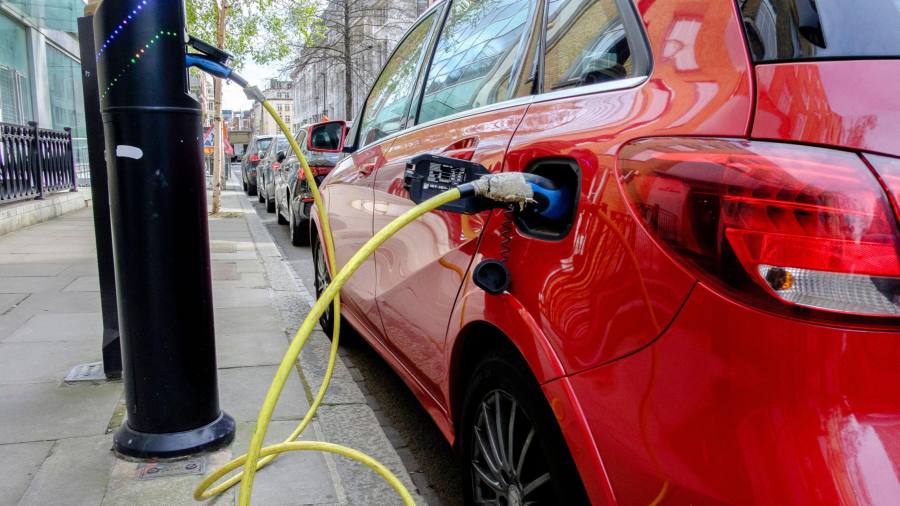
Electric vehicle owners will pay car tax from 2025 to offset falling revenues from the slow decline of petrol and diesel vehicles ahead of their planned phaseout at the end of the decade by the UK government.
Chancellor Jeremy Hunt said on Thursday that the exemption for battery-powered cars from vehicle excise duty, known as car tax, would end in April 2025.
The decision removes one of the remaining tax advantages of owning a zero emission vehicle, which remain more expensive than traditional combustion engine equivalents. The plug-in car grant, which initially gave motorists up to £5,000 off the price of a new electric car, was finally scrapped earlier this year.
Electric vehicles will continue to enjoy generous tax treatment under company car schemes, while drivers also avoid paying fuel duty, which is one of the largest motoring taxes.
Hunt said the measure was important “to make the motoring tax system fairer”, though green lobby groups said the move would make battery cars less affordable, especially in the second hand market.
There are expected to be about 2mn electric cars on UK roads by the middle of the decade and the removal of the exemption is forecast to raise £515mn in 2025, £985mn in 2026 and £1.6bn in 2027. The move is designed to address the projected further decline in tax revenues from motorists as they transition to electric vehicles and combustion engines become more efficient, with fuel duty income already falling as a result.
Under the rules, new electric vehicles sold from April 2025 will pay a lower rate for the first year, then the standard rate — currently £165 a year — from the second year onwards. The removal of the exemption will also apply from the same date to older electric cars registered after 2017.
The requirement to pay car tax will extend to the luxury car supplement, which applies to vehicles with a list price of more than £40,000. Owners of more expensive petrol or diesel cars currently have to pay an extra £355 annually, taking the total to £520, from years two to six of the vehicle’s life. While electric car prices are expected to fall as battery costs come down, most of them have a list price of more than £40,000 at present.
Ralph Palmer, of lobby group Transport & Environment, said it was “just plain wrong” to penalise electric cars. “Whilst EV drivers should contribute to infrastructure and maintenance through taxes, this should be accompanied by a broader shift to more effectively tax polluting cars too, particularly at the point of purchase,” he said. “Not maintaining or widening the tax differential between electric and emitting cars is a massive own goal and risks stifling the progress the UK has made on electrification.”
But Nicholas Lyes, of the RAC motoring group, said removing the car tax exemption was “unlikely to be a defining reason for vehicle choice” and did not expect the change to have “much of an effect on dampening the demand for electric vehicles given the many other cost benefits of running one”.
Hunt said that lower company car tax rates — the most generous tax incentive on electric vehicle ownership — would remain in place but would increase by 1 percentage point a year between 2025 and 2028.
The UK plans to phase out the sale of new petrol and diesel cars by the end of the decade, with some hybrids still allowed until 2035.